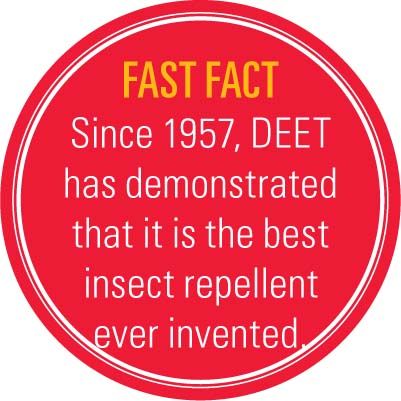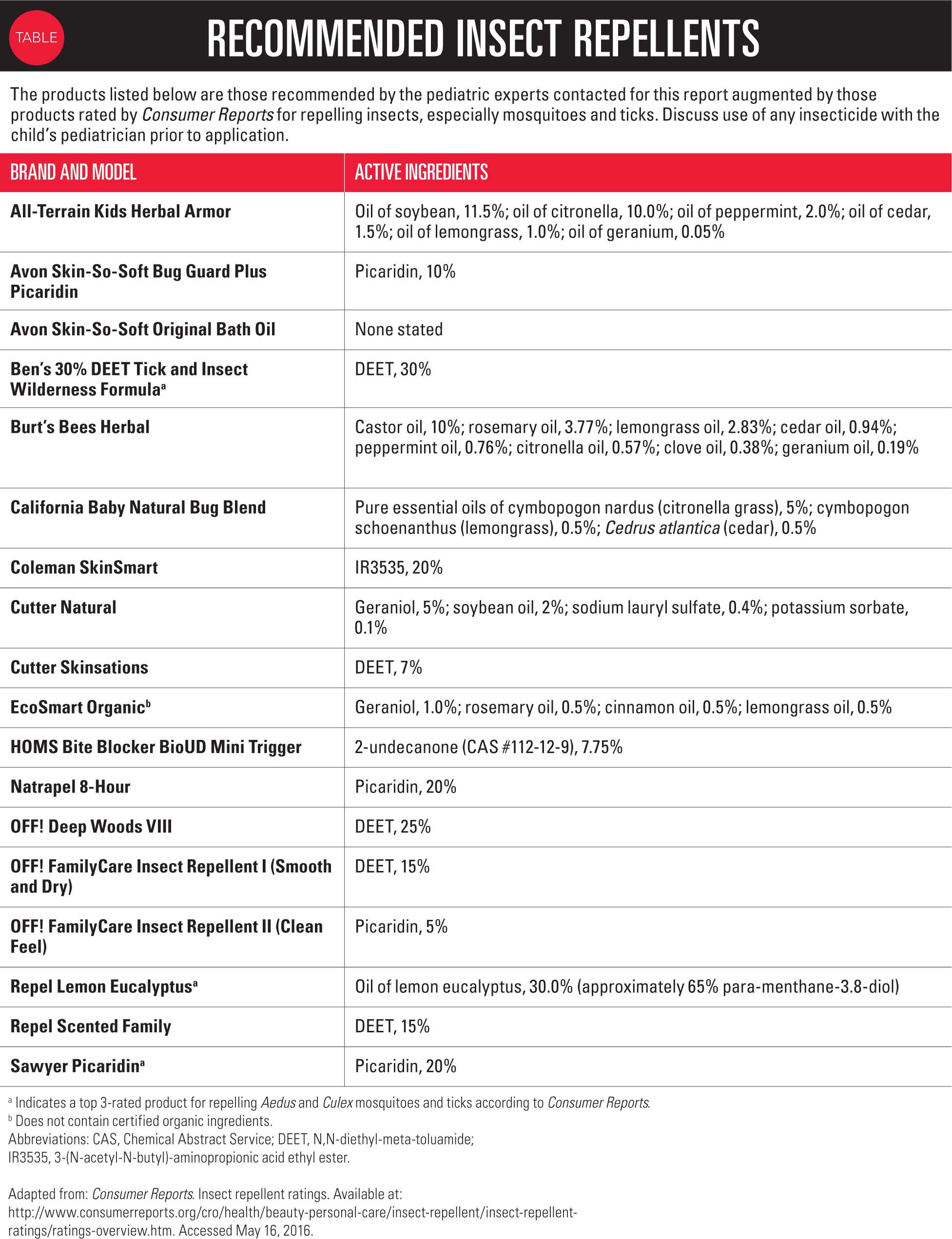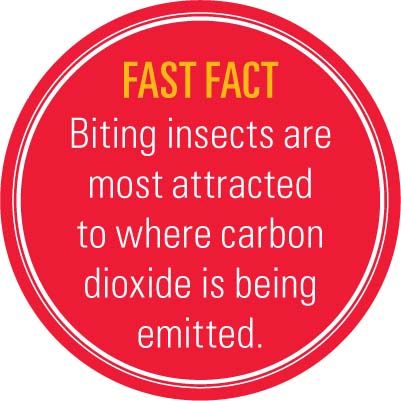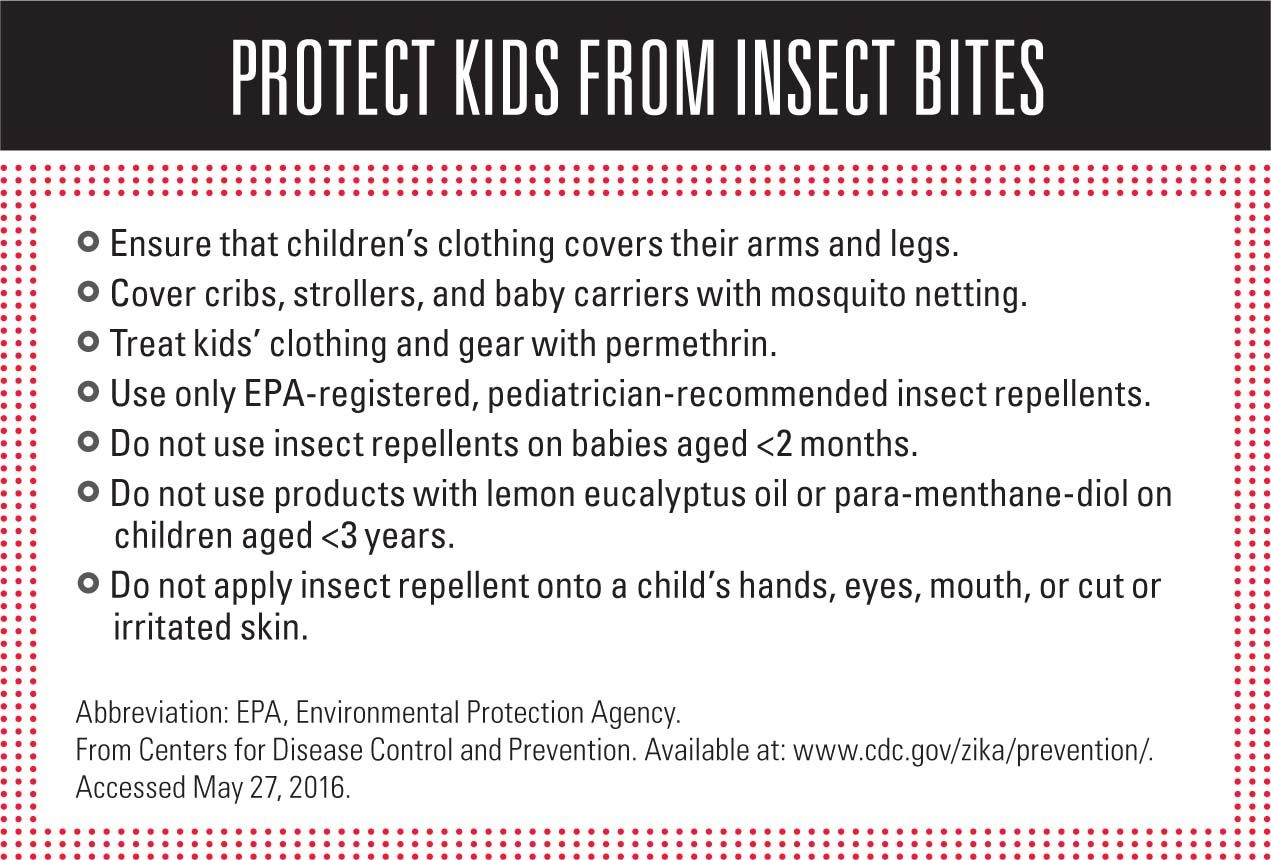Zika virus: Top mosquito repellent recommendations
With summer here and concern growing about the spread of the Zika virus to the United States, pediatricians might notice more patients inquiring about how to safely repel mosquitoes and their disease-inducing bites.
With summer here and concern growing about the spread of the Zika virus to the United States, pediatricians might notice more patients inquiring about how to safely repel mosquitoes and their disease-inducing bites.

The Centers for Disease Control and Prevention (CDC) is urging everyone to take steps to prevent mosquito bites with such things as appropriate clothing and Environmental Protection Agency (EPA)-registered insect repellents. The repellents, according to the CDC, should have 1 of the following active ingredients: DEET (N,N-diethyl-meta-toluamide); picaridin (2-[2-hydroxyethyl]-1-piperidinecarboxylic acid 1-methylpropylester); IR3535 (ethyl butylacetylaminopropionate); or oil of lemon eucalyptus (para-menthane-diol).
Contemporary Pediatrics asked pediatric and dermatology experts to share their best patient recommendations for insect repellents. This article summarizes what they had to say.
Since it was developed in 1957, DEET has demonstrated that it is the best insect repellent humans have ever invented, says Tucson, Arizona-based dermatologist Ronald G. Wheeland, MD.
"In a 20% to 50% concentration, it is effective and safe, according to the US Agency for Toxic Substances and Disease Registry. In addition, use of long sleeves and pants will help reduce the incidence of mosquito bites," Wheeland says.
Recommended: CDC update guidance on Zika virus
Tina S Alster, MD, director, Washington Institute of Dermatologic Laser Surgery, Washington, DC, says that according to Consumer Reports, the most effective products against the Aedes species mosquito, which spreads the virus, were Sawyer Picaridin Insect Repellent (Sawyer; Safety Harbor, Florida), containing 20% picaridin; Ben's 30% DEET Tick and Insect Wilderness Formula (Tender Corporation; Littleton, New Hampshire); and Repel Lemon Eucalyptus (Spectrum Brands; Middleton, Wisconsin), which contains 65% paramenthane-3.8-diol.
"These products provided protection for about 8 hours and were as effective as products with higher chemical concentrations," Alster says.
Dermatologist Joel Schlessinger, MD, president of LovelySkin.com, says that although DEET is very important for protection, the use of barrier clothing and nets in the home (particularly around the bed area) are essential.
NEXT: Recommended Insect repellents

NEXT: How physical 'roadblocks' can help
"Mosquito repellent will never be completely effective and, for that reason, it is imperative to put other roadblocks between the mosquito and you," Schlessinger says. "If any of your patients are considering going to an infested area, they can purchase hats with netting on them and clothing that is long sleeved in advance. During the night, they should sleep in beds that have netting around them. One particularly effective tool is to spray clothing with DEET-containing repellent. This allows for better control of bugs and potential Zika vectors."
Sandy Tsao, MD, assistant professor, Harvard Medical School, Boston, Massachusetts, and a dermatologist at the Dermatology Laser and Cosmetic Center at Massachusetts General Hospital, Boston, says DEET is her go-to recommendation for repelling mosquitoes. Tsao says she uses OFF! Deep Woods, but there are other OFF! products, such as Off! FamilyCare Smooth and Dry and Off! Skintastic FamilyCare Insect Repellent, that are less concentrated.

"DEET is seen as one of the most effective products for repelling insects, but the concern is that it can be neurotoxic," Tsao says. She recommends that parents discuss with their child's pediatrician his or her recommended products to minimize insect bites prior to any insecticide application. The pediatrician may recommend a specific brand of insecticide or recommend alternate skin protective measures other than insecticide use to minimize any potential insecticide adverse effects.
Tsao also recommends permethrin clothing treatment that lasts for 6 washes. Using these products, which impregnate clothing with insect repellent, could lead to less need for DEET and other insecticides, she says.
"Biting insects, including mosquitoes, are most attracted to where carbon dioxide is being emitted, so your face and ears are prime targets for a bite," Tsao says. "As well, insects tend to gravitate to areas of heavy sweat." She recommends that patients apply the insecticide to any areas of exposed skin - making sure to not forget the ankles, feet, hands, and scalp.
Next: Preparing kids for travel on airplanes
Medina, Ohio, dermatologist Helen M Torok, MD, says she has trepidation about recommending DEET, but will talk to patients about DEET if asked about mosquito repellents. "Of those [patients] that are also uncomfortable with DEET, then I recommend the lemon-eucalyptus products," she says.

Elaine C Siegfried, MD, professor of pediatrics and dermatology, Saint Louis University, Missouri, says she defers to CDC recommendations for Zika prevention. "For children with sensitive skin, treat clothing and gear with permethrin or purchase permethrin-treated items,"she says.
Ms Hilton is a medical writer who has covered health and medicine for 25 years. She resides in Boca Raton, Florida. She has nothing to disclose in regard to affiliations with or financial interests in any organizations that may have an interest in any part of this article.